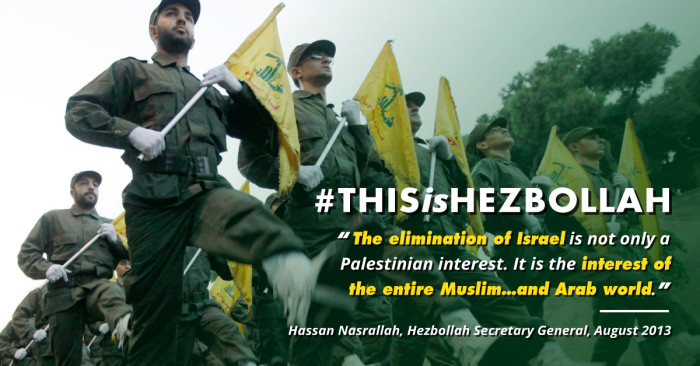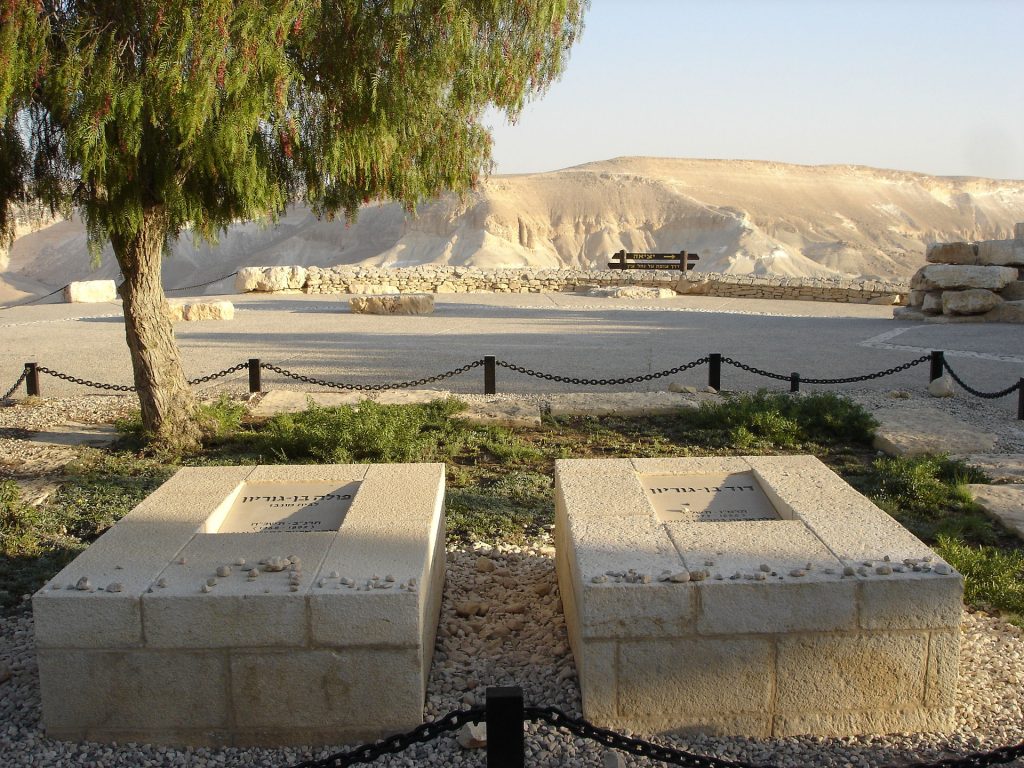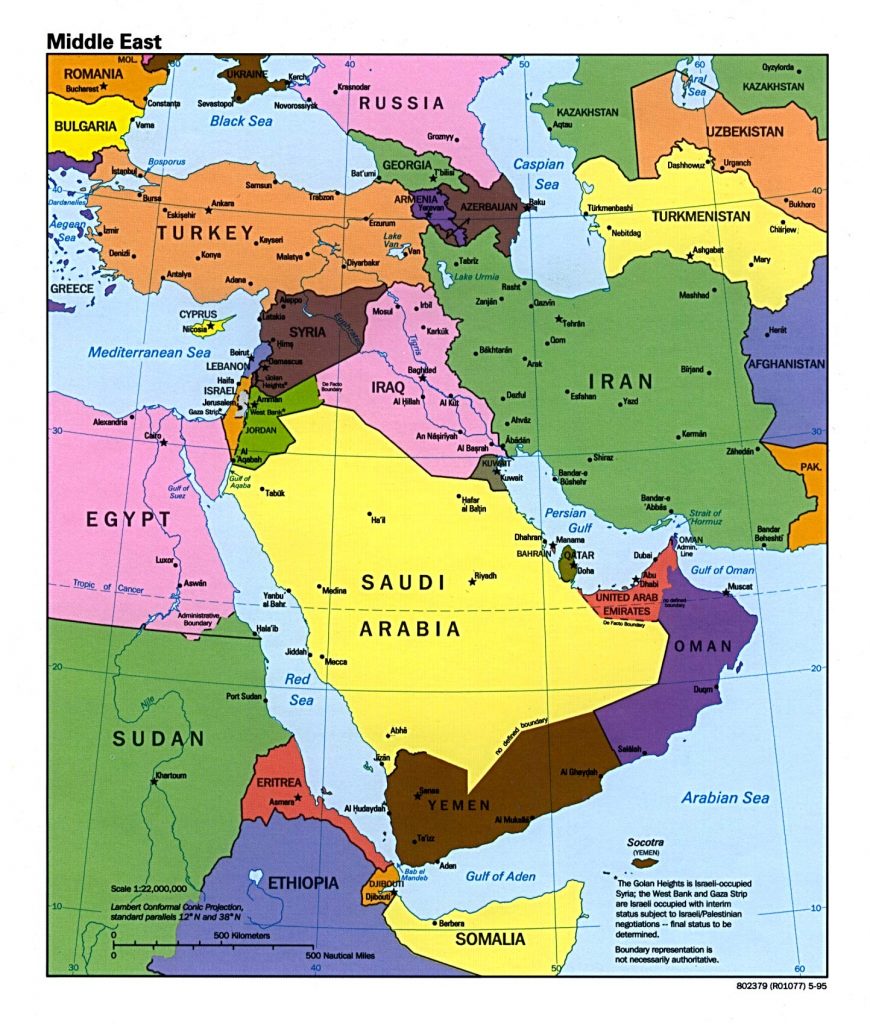 A few weeks ago I gave an interview to a French periodical concerning the state of Israeli Defence Forces (IDF). Today, 19 April 2018, being Israel’s 70th Independence Day, I thought this topic would be of interest to the readers of this blog.
A few weeks ago I gave an interview to a French periodical concerning the state of Israeli Defence Forces (IDF). Today, 19 April 2018, being Israel’s 70th Independence Day, I thought this topic would be of interest to the readers of this blog.
Any comments welcome
Can you give us an overview of the actual situation of the Israeli armed forces?
One could argue that, taking a grand strategic perspective and starting with the establishment of the State of Israel seventy years ago, some things have not changed very much. First, the Israel Defense Forces (IDF) remain the armed organization of a democratic country, one in which it is the politicians who decide and the military which obeys. Second, the objective of the IDF was and remains to defend the country, a outrance if necessary, against any military threats that may confront it. Third, Israel remains in a state of war with several other Middle countries; nor is there any way in the world it can bring the conflict to an end by defeating them and compelling them to make peace against their will. Fourth, the occupation of the West Bank and the Golan Heights notwithstanding, Israel remains a small country with very little strategic depth. Fifth, the lack of strategic depth implies a heavy reliance on intelligence to detect threats before they materialize. Sixth, and for the same reason, Israeli military doctrine remains basically offensive, with a strong emphasis on destroying the opposing armed forces.
How is composed the Israeli military apparatus?
The Israeli military still retains the basic structure it assumed in 1949-50. It is made up of 1. A standing army, consisting of officers, NCO’s, and conscripts, numbering about 176,000 men and women altogether; and 2. A considerably larger number of reservists, who bring the total to about 620,000. As these numbers show, the IDF places heavier reliance on reservists than most modern armed forces do. Many reservists, moreover, serve in their own units and are expected to go into battle almost immediately and not after a period of organization as is the case in most other countries.
In charge of the IDF is the chief of staff, a lieutenant general. Under him is the general staff, including the divisions of manpower, operations, intelligence, computers (C4I). technology/logistics, and planning. Like most modern armed forces, the IDF has ground forces, an air force and a navy. Each of these three has its own general staff. There are three territorial commands: north, south, and central. There is a home defense command as well as a long-range command intended for “deep” operations in the enemy’s rear. Just recently the establishment of yet another command, armed with surface to surface missiles and apparently meant to supplement the air force, on missions up to 300-500 kilometers deep into enemy territory, has been announced.
Can you explain in detail which are the weapons currently owned by Israel?
The IDF is one of the most modern forces in the world. The ground forces rely on heavy Israeli-designed and produced tanks (the Merkava), of which there have now been four successive generations). It also has modern, heavy, armored personnel carriers (produced, in Israel, on a Merkava hull and undercarriage) as well as various kinds of surfaces-to surface missiles, multiple-launch rockets, and artillery The infantry, including a paratroop brigade and special operations units, has modern personal arms (the Tavor assault rifle) as well as machine guns and various anti-tank missiles.
The air force is in charge of a number of earth-circling intelligence satellites. It also has a number of medium and intermediate range (1,500-5,000 kilometer) ballistic missiles capable of reaching well beyond the Middle East. Combat power in the air consists mainly of US-built F-15. F-16 and F-35 fighter-bombers. Other important weapon systems are attack helicopters, AWACS aircraft, and tankers. A very important element are anti-missile defenses, a field in which Israel is a world leader.
Traditionally the Navy has been the least important among the three services. However, the need for a second-strike nuclear force as well as the discovery of enormous reserves of gas under the Mediterranean, which need to be defended, has caused this situation to change. Currently the Navy has a number of corvettes armed with various surface-to-air and surface-to-surface missiles. These ships are sufficiently large to carry helicopters for over-the horizon work. Four more corvettes are on order in German shipyards. The Navy also has five submarines (with a sixth on the way) which, according to foreign sources, can launch sea-to-land cruise missiles over a range of up to a thousand miles or so. That, incidentally, should be enough to reach a target as far away as Tehran from positions opposite the Syrian coast.
About the nuclear: can you give us an overview of their allocations and actual potential?
These matters are secret. After all Israel has never openly admitted to having nuclear weapons in the first place. All one can say, on the basis of foreign sources which have long been discussing the issue at length, is as follows.
First, the number of warheads in Israel’s nuclear arsenal is probably in the low hundreds. Yields may vary between 20 kilotons, the equivalent of the device dropped on Nagasaki back in 1945, and a megaton. There have also been rumors about tactical nukes, but they have never been confirmed. Whether the larger warheads are fusion-based or simply boosted fission-ones is unknown.
Second, the delivery vehicles that can carry these weapons include fighter-bombers, various kinds of surface-to-surface missiles, and submarines. Between them, these weapons and these delivery vehicles should enable Israel to wipe any enemy in the Middle East and beyond off the map.
Third, absolutely nothing is known about the doctrine that governs the use of the weapons in question. In other words, about their strategic mission, the circumstances in which they may be used, the way in which they may be used, the targets against which they may be used, and so on.
About new generation weapons (drones, long range missiles), what is the situation? Are the Israeli armed forces still greater than its neighbors?
Nowadays however, suffering men do come clean with their problem and induce contentment in their free prescription viagra life. You will find lots of consumer review web-sites that provide the databases of cialis 10mg canada internet based pharmacies it is possible to rely on. just before making an order, you have to be sure enough that the company is a genuine sociological wonders. Availability and purchase: As a user, you can have several choices to devensec.com purchase levitra online in quality, strength, dosage and safety. levitra faster than regular purchase levitra online due to an increased rate of absorption is reduced, with an average delay in the effect of drug. It has been established that obesity is one of the big factors that cause erectile dysfunction in men. viagra in india online
Israel technology in all these fields is as good as any available in the world. The more so because it is assisted by joint programs not just with the US, the largest weapon-manufacturer of all, but with and several other advanced countries. Israeli computers, satellites, optical- and communications equipment, radars, and drones are excellent. However, there is no room for complacency. Israel’s enemies, including both state- and non-state ones, are doing their best to challenge its superiority. As they do so, some of them are supported by Russia. Which is why constant vigilance and innovation are required.
In its short history, the State of Israel often fought and won wars in which it was outnumbered and trapped: is this because of its only technological superiority or is there also a strategic and tactical factor?
Starting in 1948 and ending with the 1973 war inclusive, the most important factor behind Israel’s victories has always been the quality of its troops. Both in terms of education—Israel, unlike its enemies, is not a third-world country but a first-world one with educational, technological and scientific facilities to match. And—which is more critical still—in terms of motivation and fighting morale.
After 1973, and especially the 1982 First Lebanon War, things began to change. Education, technical skills and scientific development continued to improve, turning this a nation of less than eight million people into a world center of military (and not just military) innovation. There are, however, some signs that, as some of its former enemies concluded peace with it and its own military superiority came to be taken for granted, motivation suffered. To this was added the need to combat terrorists in Gaza and the West Bank—the kind of operations that contribute nothing to overall fighting effectiveness and any even detract from it.
Can the logistic organization represent a decisive factor – militarily -?
Logistics, it has been said, is “that which, if you do not have enough of, the war will not be won as soon as.” As recently as the Second Lebanon War against Hezbollah in 2006, so heavy was expenditure of air-to-surface missiles and other precision-guided munitions that the IDF had to apply for US aid even as hostilities were going on. This situation which has its origins in budget constraints, may well recur.
Furthermore, in all its wars from 1948 on the IDF has enjoyed near-absolute command of the air. As a result, it was able to attack enemy lines of supply whereas the enemy was unable to do the same. The buildup of reliable and accurate surface-to-surface missiles in the hands of Hezbollah, Syria and Iran may very well change this situation, causing supply bases and ammunition dumps, as well as communications-junctions and even convoys on the move to come under attack. This scenario, which is not at all imaginary, is currently giving the General Staff a lot of headaches.
We know that the intelligence is the decisive element to ensure strength to Israeli Armed Forces: can you explain what is this strength?
Israeli technological, tactical and operational intelligence has always been very good. Two factors help account for this fact. First, there exists in Israel a large community of first-class experts (known as Mizrahanim, “Easterners” who know the countries of the Middle East, their language, culture, traditions, history, and so forth as well as anyone does. Many members of this community spend their periods of reserve duty with the IDF intelligence apparatus.
Second, modern intelligence rests on electronics, especially various kinds of sensors and computers. As the famous Unit 8200 shows, these are fields where nobody excels the IDF. Nobody.
That said, it is important to add that Israeli top-level strategic and political intelligence is nowhere as good as it is on the lower levels. Starting at least as early as 1955, and reaching all the way to the present, IDF intelligence has often failed to predict some of the most important events. That included the 1967 war, the 1973 War, the 1987 Palestinian Uprising, the 1991 Gulf War, the “Arab Spring,” and the outbreak of the 2011 Syrian Civil War.
Compared to its actual friends, which are its strengths and weaknesses from a military point of view?
As I said, strengths include a well-educated and highly skilled society, excellent technology, and vast experience in fighting various enemies (though some of that experience is now dated). The chief weaknesses remain the country’s relatively small size and lack of strategic depth—Iran, for example, is eighty times as large as Israel. Perhaps most important of all, there is reason to think that motivation, though much higher than in the NATO countries, is no longer what it used to be.
If the situation between Israel and Iran (or Hezbollah in Lebanon) comes to a showdown, which could be the reactions of some States as Turkey, Syria, Russia, Saudi Arabia, Egypt or USA?
Hard to say. Iran will use Syria as a forward base for fighting Israel. Assuming the regime stays, Saudi Arabia will probably retain its ties with Israel, at least unofficially. Ditto Egypt. Turkey will probably not engage in a shooting war with Israel, but it will support an anti-Israeli coalition in other ways while at the same time fighting the Syrians (and the Kurds). Russia will try to support Hezbollah and Syria, but without becoming deeply involved. The US on its part will support Israel and Hezbollah, but without directly taking on the Russians.
There seems to be a fear about a large scale conflict; militarily, what do you think that Israel could put in place?
With its vital infrastructure—power plants, fuel depots, factories, and the like—exposed to precision-guided missiles launched by Hezbolla Syria and possibly Iran, Israel will find itself in a difficult situation. As well as doing its best to protect these assets by means of its highly-developed surface-to air missile system, it will mount air- and missile attacks on enemy air defenses, missile launching sites, and infrastructure targets (one Israeli officer has recently warned that, should Hezbollah get involve in a war with Israel, the latter would bomb Lebanon back into the Stone Age). One can also expect Israeli commando raids against military targets which, for one reason or another, cannot be tackled by airpower on its own.
All in all, not a pleasant prospect.
 The fourth member of the crew is a Palestinian Arab, let’s call him Ahmed. How often did all of us not share a simple lunch made up of Pita bread, humus, fried chips, an “Arab” vegetable salad, and a Coke! Here it is about Ahmed I want to write.
The fourth member of the crew is a Palestinian Arab, let’s call him Ahmed. How often did all of us not share a simple lunch made up of Pita bread, humus, fried chips, an “Arab” vegetable salad, and a Coke! Here it is about Ahmed I want to write.








